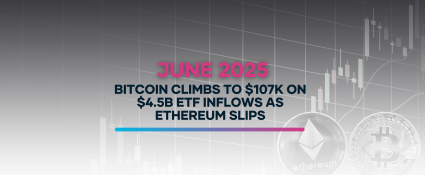Bitcoin Price: US$41,327.50 (-3.39%)
Ethereum Price: US$ 2,470.81 (-2.35%)
The U.S. Securities and Exchange Commission (SEC) has extended its deliberation period for Fidelity’s Ether exchange-traded fund (ETF), setting March 5 as the next decision date. Bloomberg ETF analyst James Seyffart expected the delay and noted that key dates for Ether ETFs are likely in late May. Meanwhile, Direxion has filed for five Bitcoin ETFs, adding to the growing number of leveraged Bitcoin ETF applications, with plans for 1x, 1.5x, and 2x long leveraged Bitcoin funds, along with short leveraged funds. In another development, Federal Judge Amy Berman Jackson, overseeing the SEC case against Binance, Binance.US, and former CEO Changpeng Zhao has ordered a review of whether digital assets are securities, considering how the SEC treats cryptocurrencies under existing regulatory frameworks. Lawyers for Binance.US will address whether digital assets remain securities indefinitely and contest the SEC’s claim that staking may be considered a security. The court will hear arguments on the SEC’s treatment of cryptocurrencies and whether an investment contract involving a contractual undertaking must persist in perpetuity. The judge raised the issue in the context of Binance’s case involving tokens like BNB and Binance USD. Meanwhile, Manta Network, a zero-knowledge proof-powered layer-2 blockchain, experienced a distributed denial-of-service (DDoS) attack amid a successful token listing on exchanges. Despite the attack, the blockchain is running safely, and funds are secure, according to Kenny Li, co-founder of P0xeidon Labs, the development team behind Manta Network. The attack coincided with Manta tokens being listed on exchanges, including Binance, Bithumb, and KuCoin. Manta tokens have seen significant trading volume, with a fully diluted market cap of $2.27 billion. The incident has been resolved, but communication between apps and the blockchain remains limited for the time being.
Stablecoins, including Tether and USDC, have become the favoured choice for illicit transactions in 2022 and 2023, surpassing Bitcoin, according to a report by Chainalysis. The shift is attributed to the overall growth in stablecoin activity, with these digital assets accounting for the majority of illicit transaction volume. While Bitcoin remains prevalent in darknet market sales and ransomware extortion, cybercriminals increasingly prefer stablecoins for activities such as scamming and transactions linked to sanctioned entities, constituting significant forms of crypto crime in terms of transaction volume. The report highlights that sanctioned entities and jurisdictions contributed to 61.5% of all measured illicit transaction volume in 2023. In parallel, TrueUSD, associated with Tron founder Justin Sun, faced a depegging event, dropping to $0.984 on January 15, prompting the deployment of daily attestation services from Moore Hong Kong in an attempt to recover its dollar peg. Despite efforts, TrueUSD’s price continued to drop, reaching as low as $0.97 on January 18. On a positive note, Bitcoin mining has achieved an all-time high of 54.5% in sustainable energy usage, with an increase of 3.6% in sustainable mining during 2023, driven by off-grid miners using methane emissions and other renewable sources, contributing to a 29% improvement in emission intensity for on-grid Bitcoin miners compared to 2021.
Decentralised finance (DeFi) protocol dYdX, running on Cosmos, surpassed Uniswap in daily trading volume, with its Cosmos-based v4 version recording nearly $757 million in 24-hour trading volume, outpacing Uniswap v3’s Ethereum market at $608 million. dYdX’s v3 market claimed the third position with around $567 million. The European Council and parliament have provisionally agreed to extend Anti-Money Laundering (AML) regulations to cover the cryptocurrency market, requiring companies to check customer details, report suspicious activities, and monitor transactions over €1,000. Additionally, Algorand has reduced block creation times by approximately 20% following the implementation of the Dynamic Lambda upgrade, resulting in average block intervals below three seconds. Meanwhile, Bitcoin miners sold over 10,000 BTC in a day on Jan. 17, marking the largest daily decline in miner reserves in over a year, with reserves now at their lowest levels since July 2021, totalling 1.83 million coins.
Source: https://cointelegraph.com
Disclaimer: The following summaries are provided for informational purposes only and are not intended to infringe upon any copyrights. All rights to the original content belong to their respective owners, and the summaries are intended to provide a brief overview of the content. If you are the owner of any of the content summarised here and have concerns about its use, please contact us to discuss the matter further.











